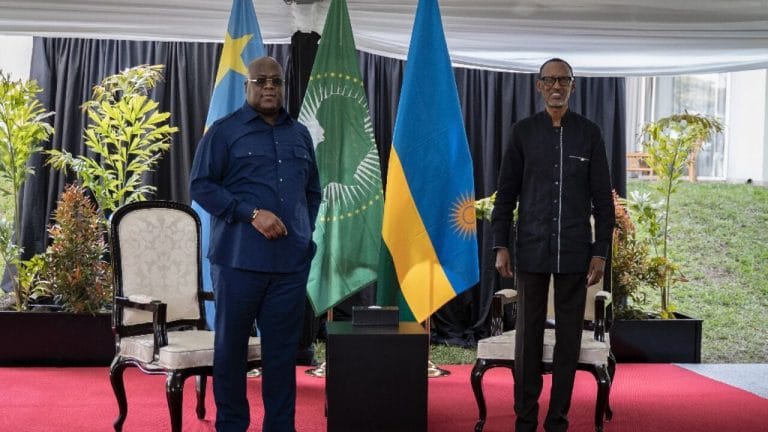Rwanda and the Democratic Republic of Congo are set to sign a peace accord in Washington on Friday, in an effort to bring an end to the deadly unrest in eastern DRC that has left thousands dead and destabilized the region for years.
The agreement will be signed by the foreign ministers of both countries in the presence of U.S. Secretary of State Marco Rubio, according to a State Department announcement. The White House also confirmed that President Donald Trump will meet with the ministers in the Oval Office.
In a joint statement issued prior to the signing, the governments reaffirmed their commitment to mutual respect for territorial boundaries, an end to hostilities, and the disarmament of all armed non-state actors.
Escalation and Accusations
The resurgence of the M23 rebel group in late 2021 reignited tensions in the eastern DRC. The group has since advanced rapidly, capturing several areas including the strategic city of Goma. Kinshasa has consistently accused Rwanda of backing M23 militarily, a claim Rwanda denies. Kigali, in turn, has called for international efforts to neutralize the Democratic Forces for the Liberation of Rwanda (FDLR), a militia active in the region.
Mediation efforts were supported by Qatar and led by Massad Boulos, a senior advisor on African affairs appointed by President Trump. Boulos, a Lebanese-American businessman, played a key role in moving the negotiations forward.
The agreement also outlines a plan for regional economic cooperation, with a future summit proposed in Washington bringing together President Trump, President Paul Kagame of Rwanda, and President Félix Tshisekedi of the DRC.
Clarity and Contention
President Trump has promoted the accord as a diplomatic victory, expressing frustration that his efforts have not been recognized with a Nobel Peace Prize.
Despite the symbolic breakthrough, the deal has faced criticism over its lack of clear detail—particularly regarding the economic framework. Observers suggest that Washington’s broader strategic goal is to compete with Chinese influence in the region and secure access to eastern Congo’s mineral wealth.
On the eve of the signing, reports surfaced indicating that Rwanda would be required to scale back military operations in the DRC, while Kinshasa would commit to severing ties with the FDLR. However, Rwandan Foreign Minister Olivier Nduhungirehe dismissed these reports on X, stating that no mention of troop withdrawal or Rwanda Defense Force appears in the agreement.
Congolese Foreign Minister Therese Kayikwamba Wagner, who visited Washington in April to advance the talks, maintained that peace must include the exit of foreign forces from Congolese soil.
Meanwhile, U.S. efforts to secure mineral cooperation with both countries appear closely tied to the success of this peace initiative, highlighting Washington’s deeper economic interests in the region’s future stability.



